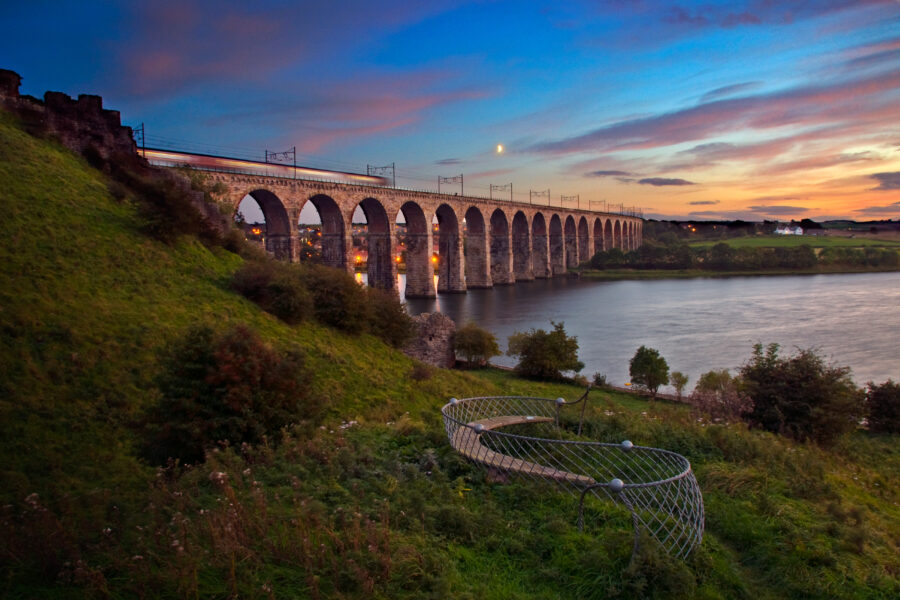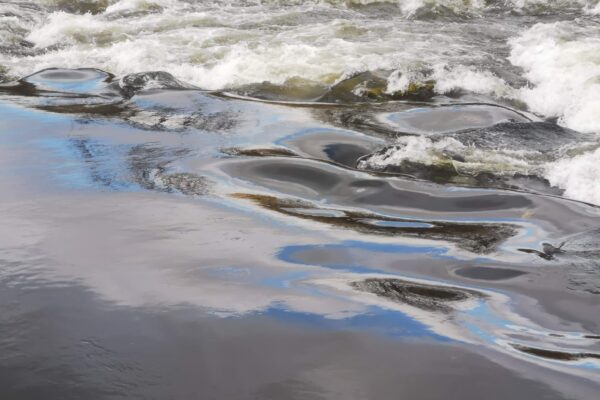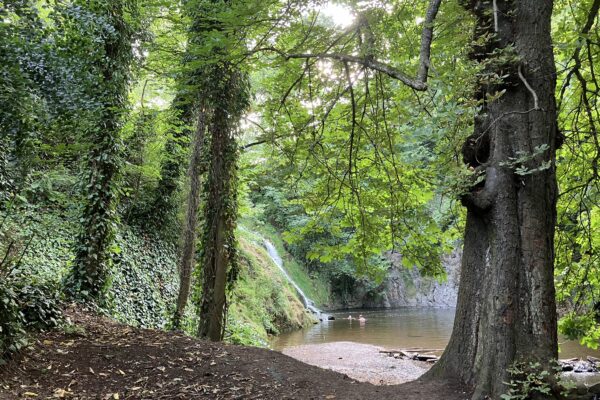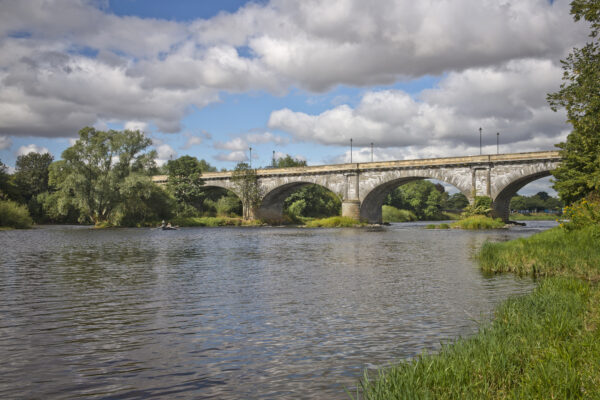The Tweed ‘kettle’ was a custom whereby gentry living near the River Tweed would invite guests to a bankside picnic with salmon boiled in a metal fish kettle. The Guild of Freemen is known to have held a kettle in 1675 and during the 19th century, the Sheriff of Berwick used to hold an annual kettle for invited guests. Other organizations soon followed in holding their own events.
In June 1894, William Elder of Tweedmouth treated his workmen to a summer ‘Tweedside Kettle’ at South Bells Fishery, the fishing shiel just up-river from Berwick and in 1900 he held a kettle at Yarrow Haugh at the Tweedmouth end of the Royal Border Bridge where a large tent had been erected in case of bad weather. The employees had what was described by The Berwick Advertiser as a ‘sumptuous repast’ with not only abundant salmon but roast beef and lamb with hot potatoes followed by strawberries and cream.
In June 1913, William Elder & Sons Ltd. of Berwick held a Tweedside kettle for over 100 employees and guests, again on Yarrow Haugh with the traditional dish of boiled salmon, other light refreshments and tea. The Loyal Toasts were given, and Councillor J. Elder hoped that the kettle would become an annual event, a wish made without knowing the terrible events that were to happen during the following five years.
The custom of holding kettles died out during the 1930s and after the Second World War was succeeded by firms’ annual dinner/dances.



